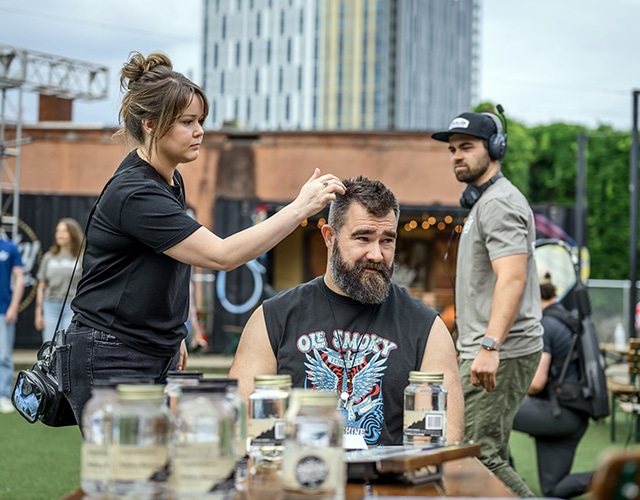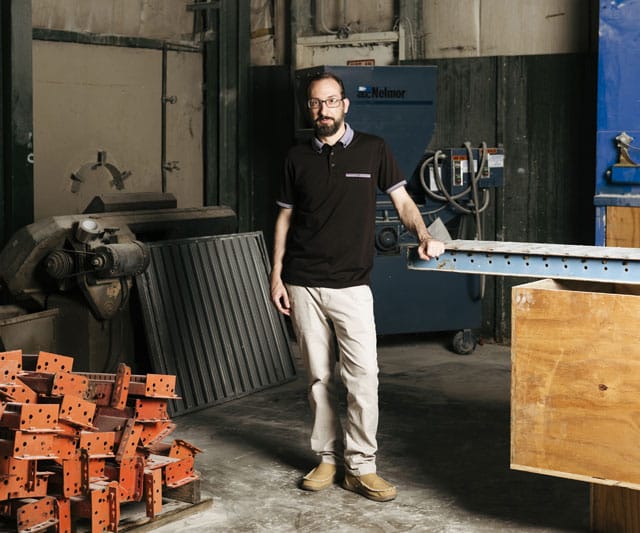In Orchard Park, New York, this past January, just as tight end Travis Kelce caught a touchdown pass to help the Kansas City Chiefs take the lead in a playoff game against the Buffalo Bills, the real action for many fans watching at home was high above the field. There, in a crowded luxury box, Kelce’s brother, the burly Philadelphia Eagles offensive lineman Jason Kelce, was dancing shirtless and chugging a beer, as Travis’ girlfriend, Taylor Swift, looked on in a combination of amusement and astonishment.
That scene spread quickly online — it was even featured on the Hot Topics segment of “The View” — and Jason Kelce has since become something of a social media star. Building on24 the success of the podcast the brothers host and the Campbell’s Soup commercials they have starred in with their mother, he has appeared in ads for hot sauce, charcoal and other products.
But since retiring from the NFL in March, what happens for Jason Kelce off-mic and off-camera has become increasingly important. He is one of more than 200 professional athletes who have invested $50,000 to $500,000 in consumer brands like Bazooka, Cholula and Top Golf through a private equity firm called Patricof Co. Since 2019, Kelce has personally invested in 20 companies, including some of the ones he represents in ads.
That’s why in May, Kelce, 36, woke before dawn at his home in Philadelphia and flew to Nashville to film a commercial where he played a mock quality control manager for a moonshine brand that Kelce invests in. Wearing an Ole Smoky T-shirt with the sleeves cut off, he tossed jars of moonshine to employees whom he pretended to train. A crew from Shadow Lion, the film company owned in part by the retired quarterback Tom Brady, followed Kelce to a table, where he barked instructions at employees labeling bottles. “Pick up the pace,” he said before leading them in a chant: “Mash, ferment, condense, distill!”
Private equity firms, which usually require investors to pony up $1 million or more, and professional athletes, who have not always been the best stewards of their wealth, may not seem to be the most natural of partners. While some superstar athletes like Brady, Shaquille O’Neal and Serena Williams are wealthy enough to get access to private equity deals, many professional athletes park most of their money in traditional investments like stocks and bonds. Some also make riskier bets on startups, restaurants and family businesses that can quickly turn sour.
Mark Patricof learned this during his two seasons as a co-host of “MVP,” or “Most Valuable Partner,” a streaming series with Rob Gronkowski, the former New England Patriots and Tampa Bay Buccaneers tight end. A “Shark Tank” for sports, the show featured entrepreneurs pitching their products to a panel of athletes, hoping they would become brand ambassadors. Patricof would chat with the panelists and discovered that they were steered away from private equity by advisers who, he believed, didn’t fully understand its benefits.
“These guys had money and should be putting some percent of their net worth into private equity, so why were they so overexposed to these crazy deals,” Patricof recalled in an interview at his office in Manhattan. “What I got back was, ‘My wealth adviser doesn’t really want me to do any private deals.’ I figured out pretty quickly that in sports, you have the agent, the wealth manager and the best friend. You don’t have business managers.”
Patricof, a former media executive and investment banker and the son of pioneering venture capitalist and private equity investor Alan Patricof, decided there was a market opportunity there. His new firm sought out athletes who wanted to put 10% to 30% of their wealth into private equity deals. Wealth advisers and sports agencies have done this before, but often on a case-by-case basis. Patricof Co appears to be the first private equity firm dedicated entirely to this line of business.
“We’re a strategic investor, not a financial investor,” Patricof said.
Since 2018, Patricof Co has teamed up on deals with KKR, Bain and other large firms to buy into consumer brands that dovetail with the athletes’ interests and that they believe have the potential to go public or be acquired in just a few years. The 250 athletes on the firm’s roster include football stars Joe Burrow and J.J. Watt, and NBA standouts CJ McCollum and Blake Griffin. (From 40 to 100 of those athletes have taken part in each deal put together by Patricof Co; some have invested in just a handful.)
For private equity firms, some of which have had a reputation for milking profits from troubled companies they have acquired before selling them or taking them public (and were once popularly known as corporate raiders), the athletes represent relatable celebrities who can also provide marketing muscle.
Like most investments, private equity is not immune to market forces, and in the past two years, high interest rates and a slow initial public offering market have hurt firms trying to invest in and exit from companies. Consumer brands — an area that Patricof Co has focused on — have been hit so hard that Carlyle, one of the biggest players in private equity, decided in October to stop investing in U.S. consumer and retail companies.
Still, Patricof said the involvement of pro athletes distinguished his investments. He recruited Matt Siegel from Roc Nation, the sports agency, to connect with athletes. Daniel Magliocco, who specializes in mergers and acquisitions, was hired to make the deals. Amy Curtis-McIntyre, after marketing jobs at JetBlue, Airbnb and Old Navy, joined to find ways the athletes could promote the companies Patricof Co invested in, including pitching Kelce as part of Ole Smoky’s ad campaign.
Siegel helped recruit some of the first athletes to join, including Travis Kelce, retired basketball players Carmelo Anthony and Dwyane Wade, and retired New York Yankee C.C. Sabathia. The athletes receive emails describing each offering, and Siegel, Magliocco and others follow up by phone or Zoom to explain the details. Players are reminded that their money will be held for about five years and that returns are never guaranteed. They are invited to share the offer sheets with their financial advisers, who sometimes join the calls.
For now, companies like Ole Smoky say Patricof Co’s investment has been beneficial. “For me as a business owner, it’s a level of authenticity,” said Joe Baker, Ole Smoky’s founder, after Jason Kelce’s shoot ended. “It’s not paying somebody to say they like your brand, it’s partnering with somebody who’s investing in the brand because they believe in it in the first place.”
c.2024 The New York Times Company. This article originally appeared in The New York Times.







